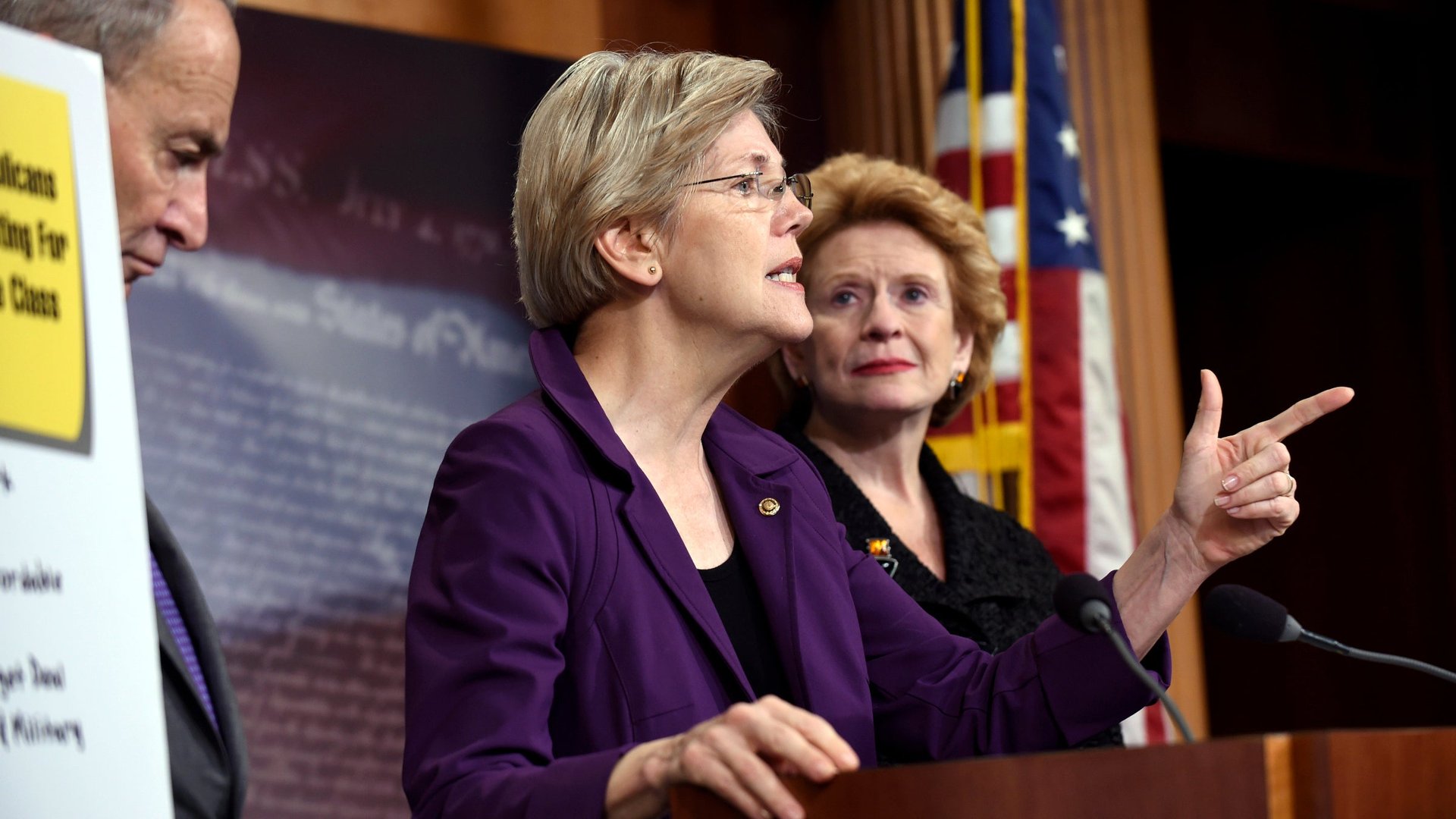Elizabeth Warren reveals the financial industry’s efforts to secretly influence lawmakers
Sen. Elizabeth Warren may have receded to the background of the raucous 2016 presidential race, but the popular Massachusetts lawmaker is still striking fear into the heart of the financial industry.


Sen. Elizabeth Warren may have receded to the background of the raucous 2016 presidential race, but the popular Massachusetts lawmaker is still striking fear into the heart of the financial industry.
In her latest finger in the eye of the US political establishment, Warren revealed payments from an investment firm to economist Robert Litan, which he failed to fully disclose while testifying before Congress. Warren’s move prompted him to resign from his non-resident senior fellowship at the Brookings Institution, an independent think tank.
Litan, who has rotated between white-shoe law firms, think tanks, and government positions since the early 1990s, recently testified against new rules for financial advisers proposed by the Department of Labor.
Currently, those rules allow brokers who manage workers’ retirement investment accounts to receive kick-backs and other inducements to recommend products that are “suitable” to investors; the Obama administration would like to impose a fiduciary standard on this advice so that brokers can only recommend products that are in investors’ best interest.
Advocates of the rule say that workers have lost out on millions by putting their money in risky investments that provide higher commissions to brokers. The financial industry has howled at the suggestion that they should have to put their clients’ interests first, saying that the costs of providing objective advice to their clients is unsustainable, and will result in less information for investors and billions in additional costs.
In his testimony, Litan highlighted economic analysis (pdf) he performed with a colleague, Hal Singer, at an economic consulting firm. Their analysis found that the rule could cause $80 billion in losses during a market correction—a far higher estimate than other experts have put forward.
Litan testified (pdf) as a non-resident senior fellow at Brookings Institution and though he didn’t mention it while introducing his oral testimony, two footnotes in his written testimony point out that his research was supported by the Capital Group, major investment management firm that would be affected by the new rule.
When Warren requested more information after the hearing, Litan revealed that he and Singer were paid $85,000 to produce the study by the Capital Group, and he personally received $38,800. He also revealed that the Capital Group had provided editorial comments on the study.
Warren sent letters to Brookings (pdf) and to the Department of Labor (pdf), criticizing the lack of transparency.
“Families and small investors deserve access to unbiased advice about their finances and financial decisions,” she wrote, “and it is equally important that the Department of Labor relies on unbiased input from experts and the public about the impact of the proposed Conflict of Interest rule.”
“Senator Warren’s letter created some discomfort … I thought it would be best for the institution if I went elsewhere,” Litan told the Wall Street Journal. He denied any conflict of interest, and said that identifying himself as a Brookings scholar while testifying before Congress—which is against the rules at the think tank—was “a minor, technical violation.”
Warren, an unabashed foe of the financial industry, also led the charge to block the nomination of Lazard banker Antonio Weiss to the post of Treasury undersecretary (though she couldn’t keep him out of the building). She also played a smaller role opposing the nomination of former Treasury Secretary Larry Summers, seen by the left as too close to the financial industry, to the post of Federal Reserve chair.